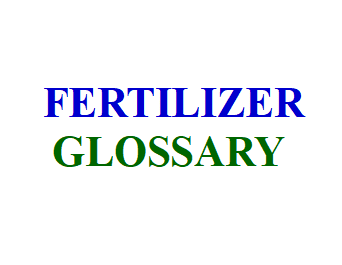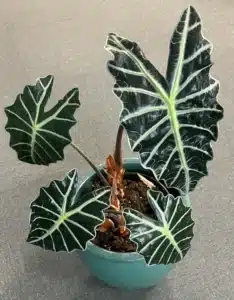
Glossary for Plant Fertilizing
Here follows a list and explainations of some of the most commonly used terminology regarding fertilizing succulents, cacti and plants in general:
Commonly used terminology related to fertilization
- Alfalfa Meal: Ground alfalfa plant; a natural source of nitrogen and other essential nutrients.
Algae Extract: Extracted from algae; rich in micronutrients and enhances plant growth.
Aluminum Sulfate: Corrects soil pH; lowers pH in acidic soils, making them more alkaline.
Azomite: Volcanic rock dust; contains a spectrum of minerals essential for plant growth.
Bat Guano: Natural fertilizer from seabird or bat droppings; rich in nitrogen, phosphorus, and potassium.
Bat Guano Tea: Bat guano steeped in water; a liquid fertilizer rich in nutrients.
Biochar: Charcoal created from organic matter; improves soil structure and retains nutrients.
- Bokashi, a Japanese compost mainly from kitchen and food scraps.
Bone Meal: Powdered animal bones; high in phosphorus for root development and flowering.
Chitin: Derived from crustacean shells; enhances soil structure and promotes microbial activity.
Chicken Litter: Droppings from chickens; a balanced fertilizer with nitrogen, phosphorus, and potassium.
Chromium: Trace mineral; enhances plant metabolism and nutrient absorption.
Coffee Grounds: Residue from coffee brewing; adds organic matter and nitrogen to the soil.
Compost: Decomposed organic matter; provides nutrients, improves soil structure, and enhances water retention.
Composted Pine Bark: Decomposed pine bark; improves soil aeration and water retention.
Cow Manure Tea: Cow manure steeped in water; a liquid fertilizer rich in nutrients.
Crab Meal: Crushed crab shells; provides a slow-release source of calcium for soil pH balance.
Cottonseed Meal: Byproduct of cotton production; provides nitrogen and phosphorus.
Dolomitic Lime: Natural limestone; adds calcium and magnesium, adjusts soil pH.
Epsom Salt: Magnesium sulfate; corrects magnesium deficiencies in soil.
Fermented Plant Extracts: Extracts from fermented plants; a bio-stimulant for plant growth.
Feather Meal: Ground poultry feathers; high in nitrogen, aids in promoting green foliage.
Fish Emulsion: Fish waste and water mixture; a quick-release liquid fertilizer rich in nutrients.
Fish Meal: Ground fish; a source of nitrogen and phosphorus, promotes overall plant health.
Gypsum: Mineral; improves soil structure and drainage, corrects soil compaction.
Green Manure: Plants grown and then turned into the soil; adds organic matter and nutrients.
Green Sand: Mineral-rich sand; a slow-release source of potassium and iron.
Humic Acid: Organic component of soil; enhances nutrient availability and improves soil structure.
Kelp Meal: Dried seaweed; rich in minerals, improves soil structure, and promotes overall plant health.
Molasses: Sugar-based product; feeds beneficial microbes in the soil.
Mycorrhizae: Beneficial fungi; forms a symbiotic relationship with plant roots, aiding nutrient absorption.
Neem Cake: Residue from neem seed processing; acts as a natural pesticide and fertilizer.
- Nitrogen Fertilizer: for production of green foliage, lush and leaves.
Oyster Shell Powder: Crushed oyster shells; provides calcium for soil pH balance.
Perlite: Volcanic glass; improves soil aeration and drainage.
Potash: Source of potassium; promotes flowering and fruiting.
Rock Dust: Ground rock particles; adds trace minerals to the soil.
Rock Phosphate: Natural mineral; provides phosphorus for root development and energy transfer.
Seaweed: Extracted from seaweed; contains trace minerals, promotes growth, and strengthens plants.
Sesame Meal: Byproduct of sesame oil production; adds nutrients and organic matter.
Silica: Improves plant structure and resistance to pests and diseases.
Soybean Meal: Byproduct of soybean processing; adds nitrogen and protein to the soil.
- Soil Conditioner: A soil amendment that helps fertilize and improve the soil structure. Often manure, pine bark, saw dust etc.
- Sulfur: Corrects alkaline soil; lowers pH and provides essential nutrients.
- Vermicompost: Compost produced by worms; nutrient-rich and enhances soil structure.
- Vermiculite: Natural mineral; improves soil aeration and water retention.
Wood Ash: Residue from burned wood; raises soil pH and provides potassium.
Worm Castings: Excrement produced by earthworms; nutrient-rich and enhances soil structure.
Zeolite: Natural mineral; improves nutrient retention in the soil.




